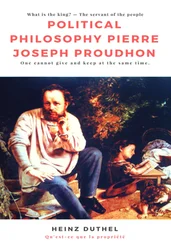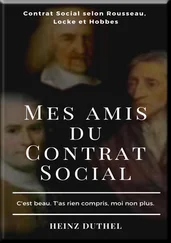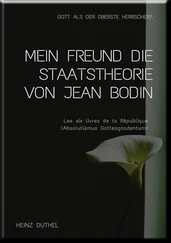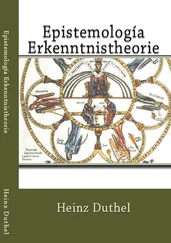[Bourdieu, 1987 #43, pps 3 - 4]
These various forms of capital advantage those pupils who accept and submit themselves to forms of acting and thinking that ensures the continuance of the elite in positions of power.
The educational system helps to provide the dominant class with a ‘theodicity of its own privilege’ not so much through the ideologies it produces or inculcates, but rather through the practical justification of the established order that it supports by masking - under the overt connection that it guarantees between qualifications and jobs - the relationship, which it surreptitiously records under the cover of formal equality, between the qualification obtained and inherited cultural capital.
[Bourdieu, 1990 #37, p 133]
According to Pierre Bourdieu, there is a fallacious view that schools are liberating forces that have as their purpose enhanced social mobility through creating greater opportunity. His empirical studies show that children from different social backgrounds become successively differentiated as they progress through the education system - hence social mobility is a sham. To explain how this works, Pierre Bourdieu uses the notion of cultural capital. This is the form of culture which is accepted and supported by the dominant force, but which is not shared by others. Schools are places where the cultural capital of the dominant class is fostered and consequently those with less cultural capital will do less well. There is a tautology here for Pierre Bourdieu. The working class then do not ‘fail’ as such, but are sifted out – participating in their own sifting. Cultural and thereby educational success is therefore largely pre-determined.
It is claimed that one significant aspect of this part of Pierre Bourdieu’s theory is the relative autonomy of cultural capital from economic capital. This marks it out from what is occasionally termed ‘traditional Marxist analyses’. This process of domination is largely successful because it goes largely undetected, being projected as the normal way of going about things. It thus depends upon Gramsci’s notion of hegemony to sustain itself. Pierre Bourdieu goes further and suggests that subjective choices become governed by objective possibilities and it is in this process that he sees the role of the habitus. People recognise the limits of their potential and restrict their desires accordingly. This may be an oversimplification since the work of Paul Willis in the 70s has suggested that working class children (‘the lads’) played a much more active and deterministic role in their own future [Willis, 1977 #22]. Paul Willis’ study of working class cultural production is an example of a detailed analysis of the structural organisation of some children’s’ outlook and social imagery.
2.2.5 Paul Willis and “Cultural Production”
The work of Paul Willis [Willis, 1976 #21; Willis, 1977 #22; Willis, 1981 #53; Willis, 1983 #23] suggests previous views that working class boys get working class jobs because they are failed by the system were too simplistic and underplayed the active nature of class interests. His research reported, in Learning to Labour - How Working Class Kids Get Working Class Jobs suggested that remaining in traditional working class jobs could be seen as a successful rejection of the dominant culture by the boys not wanting to engage in an alien culture. Working class boys reject the school culture and are determined or pre-disposed to stay working class.
In looking at Paul Willis’ work, an important distinction needs to be made between social reproduction - the fact that the dominant social structure is maintained - and what Willis calls cultural production - contributory factors to the way in which this takes place [Willis, 1981 #53; Willis, 1983 #23]. Put perhaps rather too simplistically, social reproduction is a tendency for employment histories to be inherited. Cultural production is the process whereby attitudes and social practices are formed, passed on and regenerated.
Paul Willis talks of ‘cultural production’ where ideas and ideologies are produced within the non-dominant culture, rather than being transferred down where they will be transformed or negated. Take for example performing manual labour. In Paul Willis’ book he shows how a working class culture takes this as inevitable, whilst dominant culture urges the acceptance of the dominant culture as a way out. The working class ‘lads’ can see the contradiction in here, as is illustrated by a discussion between a ‘lad’ and a businessman at a careers convention. One of the ‘lads’ is advised to not to be a painter who just splashes paint on a wall, but to try to set his sights higher and try to be an interior decorator. The boy explains, there has “got to be someone in society who slops on a wall” [Willis, 1983 #23, p 93].
Paul Willis sees cultural production as a dynamic process of ideological struggle. Dominant ideas are partially incorporated and partially subverted in the process. Schools serve to reproduce dominant culture, but they contain within them individuals and groups with differing cultural norms who contribute to the process of subversion. Counter hegemonic ideas and forces may be repressed or incorporated causing social change - or apparent social change. Paul Willis claims that cultural production has both a mediating and a contestation effect. This is important for looking at the roles schools play in social reproduction.
One central concept of Paul Willis is that of penetration wherein the counter culture is able to see through the dominant ideology and reject its foundations – e.g. the individualism of educational success.
The wisdom of movement up the gradient as an individual is replaced by the stupidity of movement as a member of a class. By penetrating the contradiction at the heart of the working-class school, the counter-school culture helps to liberate its members from the burden of conformism and conventional achievement.
[Willis, 1977 #22, pps 129 – 130]
Hence class solidarity, and the ‘you don’t dob on yer mates’ approach. Furthermore, he asserts that an affinity towards manual labour is not generated by capitalism in general, but through the “patriarchal working class culture”. Paradoxically then Paul Willis argues that it is partly this counter school culture that helps the school system achieve one of its aims – to provide working class kids for working class jobs [Willis, 1977 #22, p 178].
A missing dimension here is how the working class culture actually comes about is sustained and legitimated. The notion of the habitus could add something to this analysis by seeking to examine the way in which indirectly economic forces and structure do indeed construct this culture. Paul Willis refers to Bourdieu, drawing on “Reproduction in Education” [Bourdieu, 1977: 2nd Edition 1990 #39] to support his claim that it is unwise for working class kids to put their trust in diplomas and qualifications since achieving these does not change the position of individuals but merely serves to establish and reinforce who remains at the top of the social hierarchy [Willis, 1977 #22, p 128], yet the benefits of achieving qualifications is one of the dominant discourses of education.
2.2.6 Rachel Sharp’s Marxist analysis
Rachel Sharp lays criticism at Pierre Bourdieu for not analysing the ‘context of schooling’ [Sharp, 1980 #67, p 70]. She further criticises him for not adopting a Marxist perspective where social class is directly associated with economic capital (Sharp 1980 pps 70 - 71) and for not understanding the class struggles taking place around the social division of labour. In some ways Rachel Sharp is criticising his theory of social and cultural reproduction because it fails to take into account “an analysis of the economic preconditions for the production of capitalist production” [Sharp, 1980 #67, p 72]. An understanding of bourgeois ideology for Rachel Sharp involves
Читать дальше












